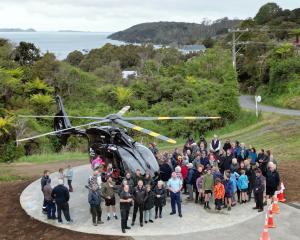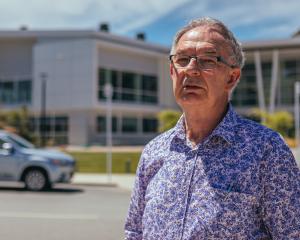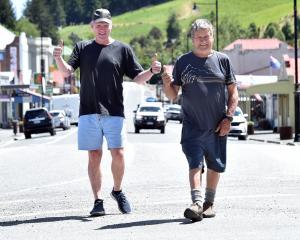The concerns came as board representatives criticised the proposed changes on the first day of the Dunedin City Council's representation review hearing yesterday.
The review, which has attracted 168 submissions, recommended reducing the number of community boards in the city from six to five, and adjusting their boundaries so urban areas were not covered.
The number of elected members on each board would also drop from six to four, while the number of city councillors remained the same, at 14.
Councillors would also be elected at large, meaning there would no longer be wards and voters could pick from all candidates when deciding who to support.
Chalmers board member Trevor Johnson - a board member for nearly 20 years - told yesterday's hearing his colleagues were ''extremely wound up'' over the proposals.
Shifting the board's boundaries would mean residents in Ravensbourne, and between Blanket Bay and St Leonards, were no longer covered by the board.
Quarantine Island would also be transferred from the Chalmers board's territory into the Otago Peninsula board's, where it was seen to be a more natural fit.
Mr Johnson said the suggested changes were ''particularly galling''.
''The proposal of the independent review team is to plunge a knife into the heart of our community.
''I just can't believe that the representation review came up with that suggestion. I just find it incredible.''
Moving to an at-large system would also make it ''very difficult'' for someone like Cr Andrew Noone - the Waikouaiti Coast-Chalmers Ward representative - to be elected, he said.
Waikouaiti Coast Community Board chairman Gerard Collings said he was ''saddened'' by the proposals, saying his community valued its local representation and the work of Cr Noone.
''We value it to the extent that we will fight for it,'' he vowed.
He pointed to the last review, in 2010, after which the Local Government Commission suggested Dunedin had distinct communities of interest - defined by their rural nature, size and relative isolation - which needed separate representation.
''I challenge this council to tell me, and tell the rest of our community, what has changed?''I would suggest nothing,'' Mr Collings said yesterday.
Opposition also came from Mosgiel-Taieri board chairman Bill Feather, who said the proposals smacked of a ''council-knows-best'' approach, when existing arrangements were ''above board and shouldn't be touched''.
Strath Taieri Community Board chairman Barry Williams said his board acted as the ''ears and eyes'' for the council in the community.
''I think there would be rocks in your head if you change it,'' he said.
Saddle Hill Community Board chairman Scott Weatherall listed the variety of projects achieved with help from the board, and opposed any move to scrap rural wards in favour of an at-large system.
Instead, the council should reinstate the Green Island-Saddle Hill ward and maintain existing board boundaries.
''We believe we add real value, and it's not the big things we do - it's the wee things.''
The boards' views came as councillors heard from 20 speakers yesterday, also including members of the public, past and present councillors and individual board members.
Among them was long-serving former city councillor Colin Weatherall, who suggested two voting ''districts'' - one country, the other metro - to ensure the city's rural voice was not lost from the council table.
''Don't abandon a large part of our city. It's critically important,'' he said.
Tony Parata - a former Waikouaiti Coast board member - was among the few to speak in support of the changes yesterday.
He said community projects were now often driven directly by the community, not their boards, which ''don't actually achieve anything'' and should have been ''done away with'' years ago.
Former Mosgiel-Taieri board member Brian Miller also supported changes to the number of boards and their boundaries ''with some sadness'', although he opposed a reduction in the number of board members.
The hearing concludes today.
Representation review proposals
Number of community boards to drop from six to five; boundary adjustments so urban areas no longer covered.
Strath Taieri and Mosgiel Taieri boards to be amalgamated into a new Taieri Rural board; Mosgiel's urban area and North Taieri's lifestyle area no longer represented.
Number of elected representatives on each board dropped from six to four.
Mosgiel-Taieri and Waikouaiti Coast-Chalmers wards to be scrapped; councillors to be elected ''at large'' instead.
Number of councillors to remain at 14.












